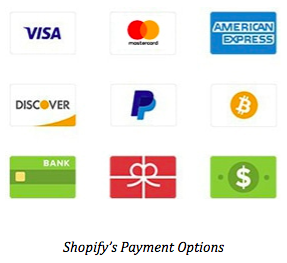There are plenty of ecommerce platforms that provide online cart software. Choosing a shopping cart that suits your business well is an essential step. This article talks about the two e-commerce platforms – Shopify and Commerce Cloud and their important features.
Which Online Cart Is Better – Shopify Or Commerce Cloud?
Evaluating the e-commerce platforms that provide online cart software before reaching a conclusion is really important. Here’s a comparison between the online carts offered by Shopify and Commerce Cloud:
Integrations
Shopify supports integration with a lot of applications like Zapier, itDuzzit, KISSmetrics, MailChimp, Fulfillrite, and Chargify. These integrations will help you promote your products as it connects your store directly with these applications and business systems.
On the other hand, CommerceCloud supports integration with third-party apps and systems in Salesforce’s AppExchange.
Devices Supported
Shopify is supported on several devices and operating systems such as iPhones, Windows, Mac, Android phones, and more.
Commerce Cloud is supported on Mac, iPhones, iPads, Linux, Windows, Web-based systems, and Android phones.
Subscription Plans
Subscription plans are a good way to access the features offered by a platform.
Shopify provides three subscription plans – The Basic Shopify Plan, The Shopify Plan, and The Advanced Shopify Plan.
The Basic Shopify Plan will cost you a monthly fee of $29. It includes features like building an online store, selling unlimited products, manual order creation, abandoned cart recovery, free SSL certificate, and more.
The Shopify Plan is for $79 per month and in addition to the features provided by the Basic Shopify Plan, this plan includes gift cards and professional reports.
The Advanced Shopify Plan comes with advanced features and is priced at a monthly expense of $299. In addition to the features provided by the Shopify Plan, the advanced plan includes advanced builder and third-party calculated shipping rates.
Commerce Cloud provides two subscription plans – Salesforce B2B Commerce and Salesforce B2C Commerce.
Potential Clients
Shopify has many potential clients like Wikipedia, Tesla, Los Angeles Lakers, and Johnny Cupcakes.
Commerce Cloud has clients like Burton, Puma, Adidas, and Godiva.
List Of Features
Shopify offers plenty of attractive features that can help a retailer grow his business. Its design feature offers customizable templates that you can use to edit your store. Shopify’s liquid templating language gives you the layout of dynamic content. You will also get control and access to your store’s HTML and CSS codes.
The CMS feature lets you organize the products of your store and allows inventory tracking. This lets you keep a track of your orders. Whenever a customer places an order, notification via email or a text message will be sent to you. You’ll have access to detailed order reports as well which can be exported to a CSV format file.
Shopify’s security feature keeps the customer’s information protected. A PCI DSS certificate ensures that all the credit card information is secured.
Commerce Cloud provides many helpful features like product management, site search, content management, multiple payment methods, and more. Product management lets you keep an eye on the stock of products. It will provide you with product related information like the sales of products. Multiple payment methods feature provides the customer with several payment modes like credit cards, mobile payments, gift cards, and more.
Shopify’s Online Cart
E-commerce platforms like Shopify provide online carts with essential features that enhance the customer shopping experience. Shopify offers a shopping cart that’s reliable and secure. The online cart lets you accept payments via various methods like credit cards and PayPal. Credit card information is secured by a PCI DSS certification. Another shopping cart feature provided by Shopify is an easy and quick calculation of the shipping rates. It calculates the shipping rates based on product prices and weight.

Shopify can detect when a customer checks out using a mobile device. It displays a mobile shopping cart checkout to the customer to optimize the shopping experience on a mobile phone.
Shopify’s online cart also lets you recover the abandoned carts. A list of email addresses of customers who went to the checkout page but didn’t complete the purchase is prepared. Lost sales can be recovered by sending an email to these customers.
Shopify’s online cart also comes with a feature that calculates the tax rates. The customer has to enter his language and currency. The system will calculate the tax rates and display it to the customer. Shopify’s easy checkout feature lets the customer place orders and make transactions easily.






